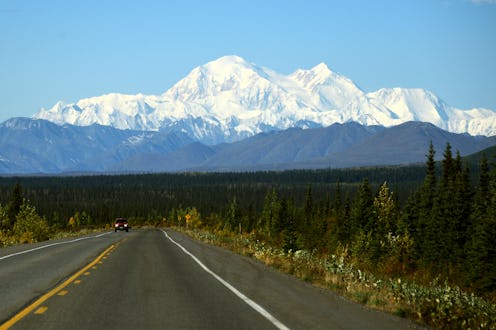News
The Act Congress Just Passed Could Expand Some Of Your Fave National Parks

Good news for environmentalists and nature-lovers in general — there's set to be a ton of newly protected wilderness to explore across the United States. The Natural Resources Management Act, which is now waiting for presidential approval, is a sweeping protection bill that combines more than 100 public lands, natural resources, and water protections bills into one big conservation package.
"This bill represents Congress at its best and truly gives the American people something to be excited about," Arizona Rep. Raul Grijalva, chairman of the House Natural Resources Committee, told The New York Times. "Everyone from inner cities to suburbs to rural communities wins when we work together to preserve the outdoors."
The public lands package designates 1.3 million acres of land across California, Utah, Oregon, and New Mexico as wilderness, the strictest level of federal land protection, according to The Times. It also provides protections from development or damming for hundreds of miles of rivers, and designates three new national monuments. Existing national parks are also set to get a boost, with 40,000 new acres of federal land being added to Death Valley and Joshua Tree National Parks, reports The Times.
Another major part of the bill is the permanent reauthorization of the Land and Water Conservation Fund (LWCF). LWCF, which had expired last year, invests the royalties paid to the government by oil and gas offshore drilling companies into land conservation. According to The Times, permanent authorization will allow conservation work to go on continuously, without Congress having to hold a renewal vote on it every few years.
The House passed the bill on Tuesday in a massive bipartisan vote, 363 in favor to 62 against, according to Buzzfeed News, and President Trump is expected to sign off as well. The Senate already passed the legislation 92-8 earlier this month.
According to the Congressional Budget Office, the new bill would save taxpayers $9 million over the next 10 years — not so much a major addition to the federal budget but more so proof, as Grijalva said in his House testimony, that protecting lands comes at "no direct cost to the taxpayer."
The Trump administration has a history of environmental deregulation, up to and including the Thursday confirmation of EPA head Andrew Wheeler, a former coal lobbyist who has worked the last few months to roll back Obama-era environmental protections. Given that political climate, as well as the legislative gridlock Congress has faced recently, environmental advocacy organizations were understandably thrilled with the outcome in the House this week.
"Today marks a great day in history for our national parks and public lands," Theresa Pierno, president and CEO of the National Parks Conservation Association, said in a statement. "Even during these divisive times, Congress has come together to protect the very places that speak to who we are as a nation. This legislation is once again proof that our national parks are powerful places that unite and inspire us."
Sierra Club Executive Director Michael Brune echoed the sentiment, writing, "It’s rare to see Congress act in an overwhelmingly bipartisan manner, but today reminds everyone that the protection of our public lands isn’t a red or blue issue, it’s an American one."